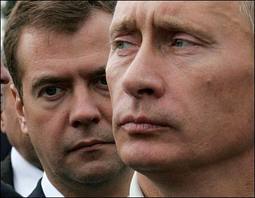 Following the safe re-election of Vladimir Putin to the Russian presidency on March 4th, the Russian government looks set to complete yet another round of institutional tinkering.
Following the safe re-election of Vladimir Putin to the Russian presidency on March 4th, the Russian government looks set to complete yet another round of institutional tinkering.
Gubernatorial elections, abolished in 2004 following the Beslan Crisis, are set to be re-introduced. Governors will be elected for five year terms, serving a maximum of two terms. A second reading of the Bill will take place in the near future, and the final shape of the legislation is still uncertain. There is disagreement between the political parties in the Duma about how the ‘presidential filter’ (consultations between political parties and the President over who can be a candidate) will work.
Meanwhile, the Federation Council has passed legislation aimed at making it easier for political parties to register. It will now be possible for parties to register with 500 members, instead of 40,000 as previously required. Eighty-two parties are awaiting registration.
Although these measures have taken some of the heat out of the anti-Putin opposition, they are unlikely to lead to dramatic changes in the Russian political system. Parties must still receive 7% of the national vote in order to win representation in the Duma, and small parties will not be permitted to form blocs. Meanwhile, the ‘presidential filter’ will ensure that only candidates friendly to the Kremlin can secure nominations to stand in gubernatorial elections.








1 Comment
can a former United states president run for senate or house?